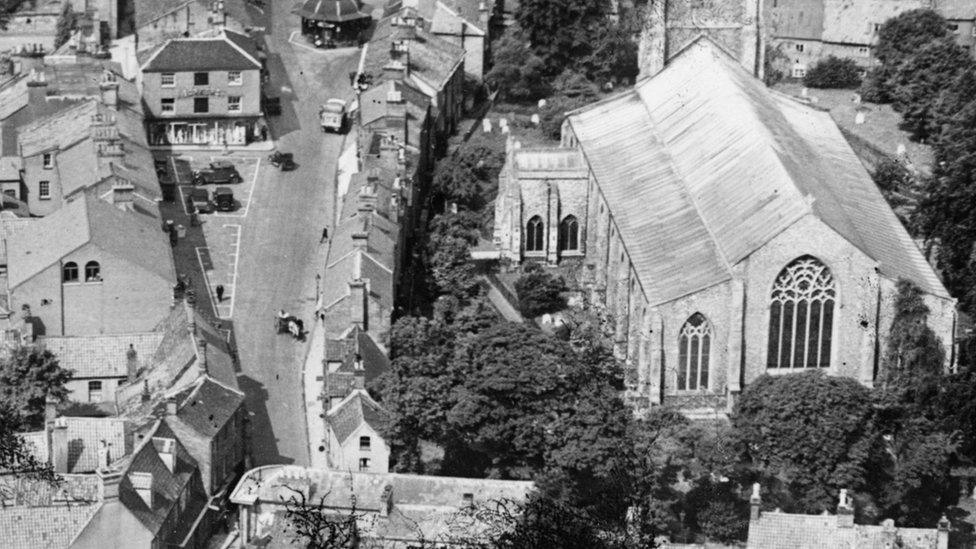North Walsham: House probe provides glimpse into town's history
- Published
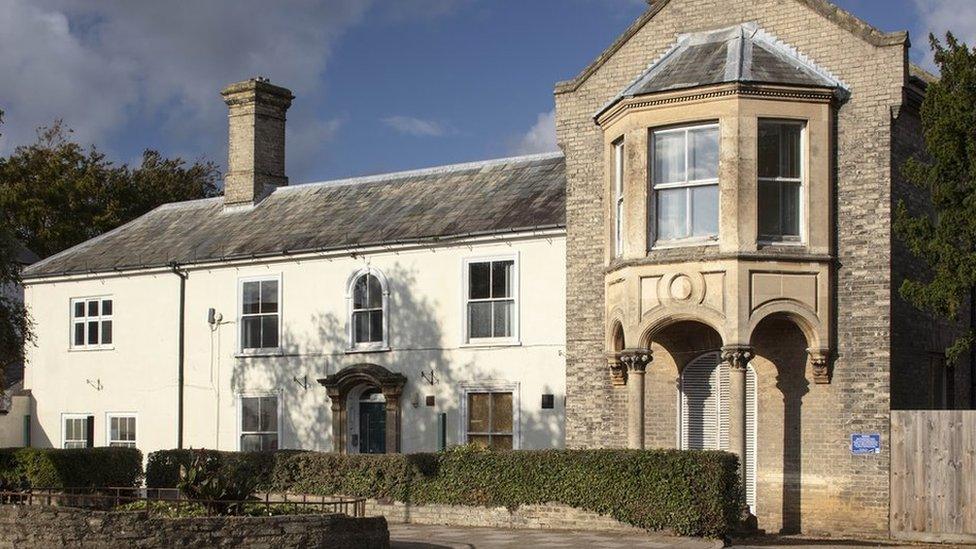
The Cedars is being renovated to reflect its former domestic character as part of the High Street Heritage Action Zone scheme
An elegant former home with links to Admiral Nelson has helped to unfold the story of a historic market town.
The history of The Cedars, in North Walsham, Norfolk, has been studied by experts as part of a £3.2m scheme to regenerate the town.
The local landmark, built in the 1700s, was home to some prominent families before being turned into offices.
Historic England said: "It's been fascinating... discovering more about the architecture and the people."

A horse and carriage pull up at Smith's Corner on the boundary of the estate in the 1880s
The public body's senior architectural investigator, Emily Cole, said the research report, external led to layers of the house's history being peeled back.
"Throughout the house there are clues to its changes in style and status through the centuries," she said.
"We've learnt so much about the history of North Walsham as a result of this property and its location in the town."
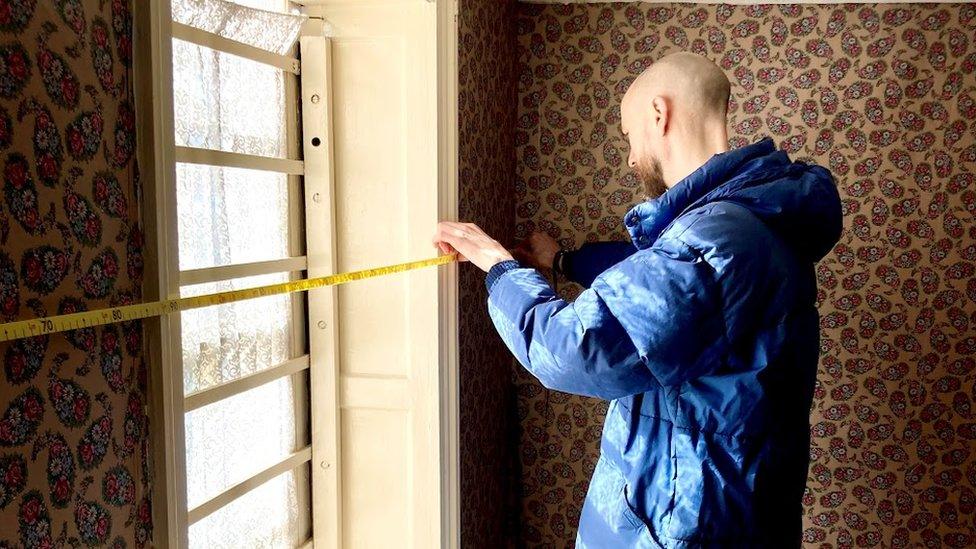
Architectural investigation work has been taking place at The Cedars to help provide more of an insight into the town's history
It's believed The Cedars, located by the medieval Market Place, was built on the estate of a large former house called The Oaks.
Who lived there?
It was first occupied in the early 1800s by naval hero Capt Withers, who settled in the house after serving under Norfolk's Royal Navy hero Nelson in a number of positions.
Vet William Shipley then took on the house in the late 1830s, turning one of its rooms into a surgery.
He lived there with his wife and two sons, with one taking over the practice and the oldest, also William, running a second well-known vet's, external that his father set up in Great Yarmouth in 1843.
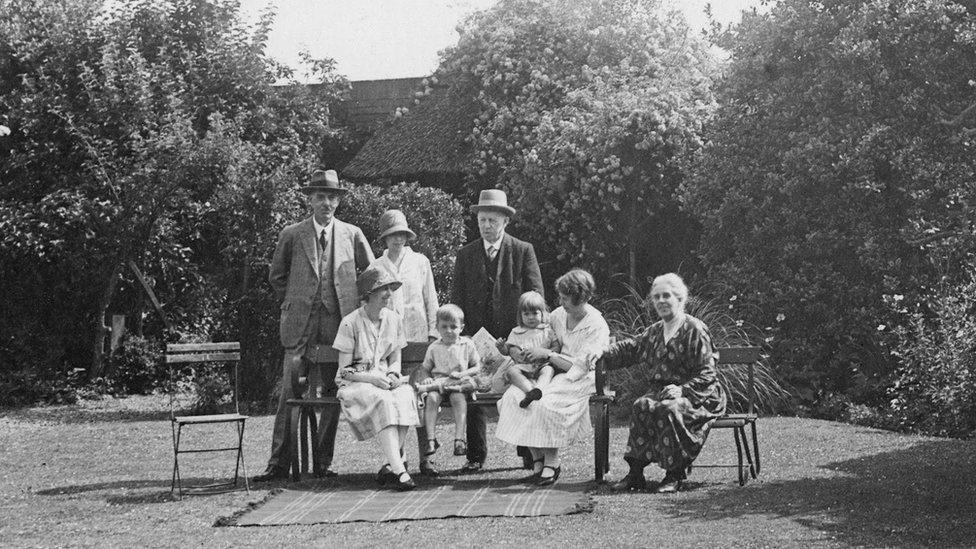
The Smith family were pictured in the 1930s in The Cedars' walled garden, which was later turned into a car park
The Grade II listed house was then sold in 1869 to local grocer, draper and bank agent George Smith.
The home was extended over the years and eventually became home to Mr Smith's banker son and his family, including two sons who died in World War One.
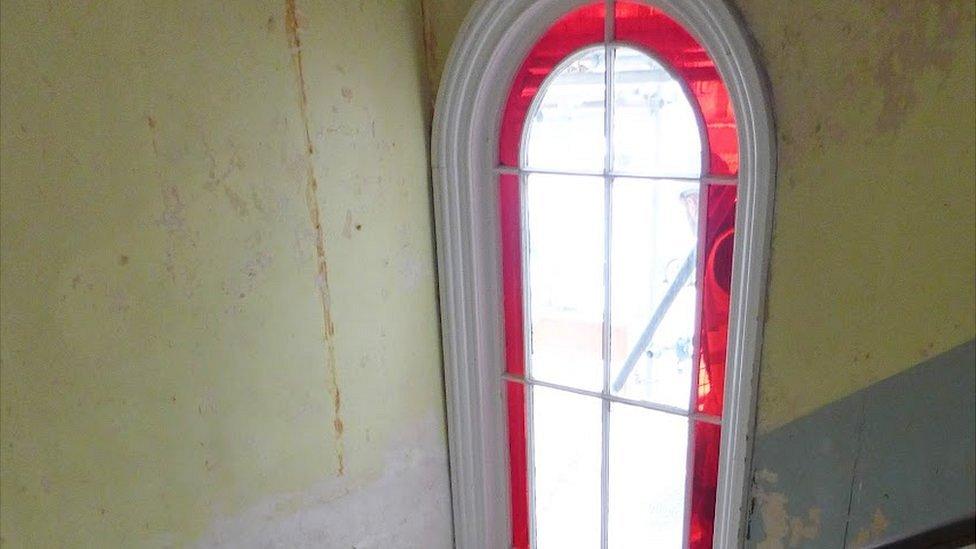
The stained glass window stands above the staircase that dates back to the 1860s/70s
Their mother Madeline, who headed many local groups, continued to live at the house with daughter Gladys, who took on her father's role as savings bank branch manager until she retired in the 1960s.
When Madeline died in 1946, the house was converted into offices by North Walsham Urban Council, before it became part of North Norfolk District Council - and left the building in 2016..
Cedar House is now being restored and plans are under way for the North Walsham Town Council and Citizen's Advice to move in.
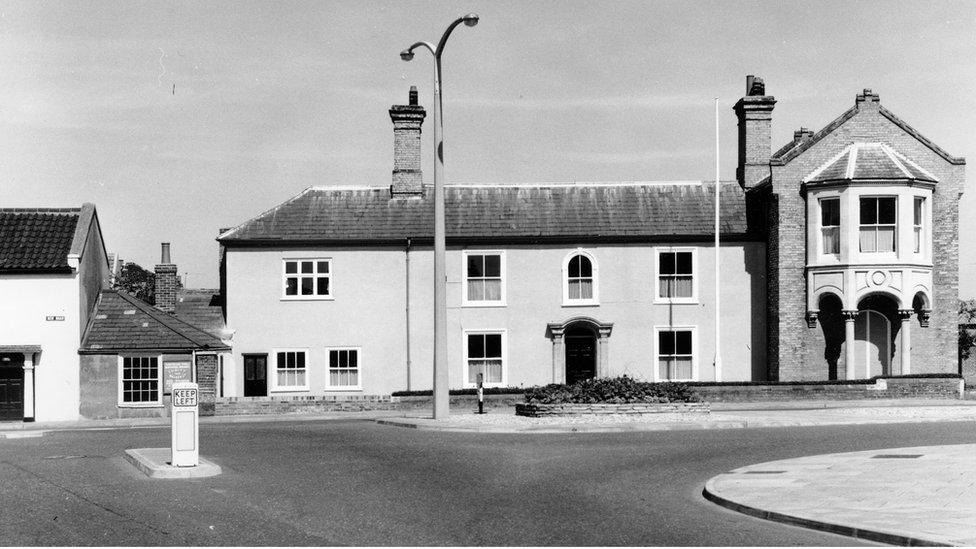
The Cedars, pictured in the 1960s, was listed as a grade II building in 1972 and further altered as council offices in the 1980s and 1990s
Historic England carried out the research to better understand the area's architectural history and boost local pride as part of the government-funded North Walsham High Street Heritage Action Zone scheme, external.
North Norfolk District Council's culture portfolio holder Virginia Gay said: "The story of The Cedars is not simply the story of an appealing old house - it's also the story of a market town at the heart of English history."
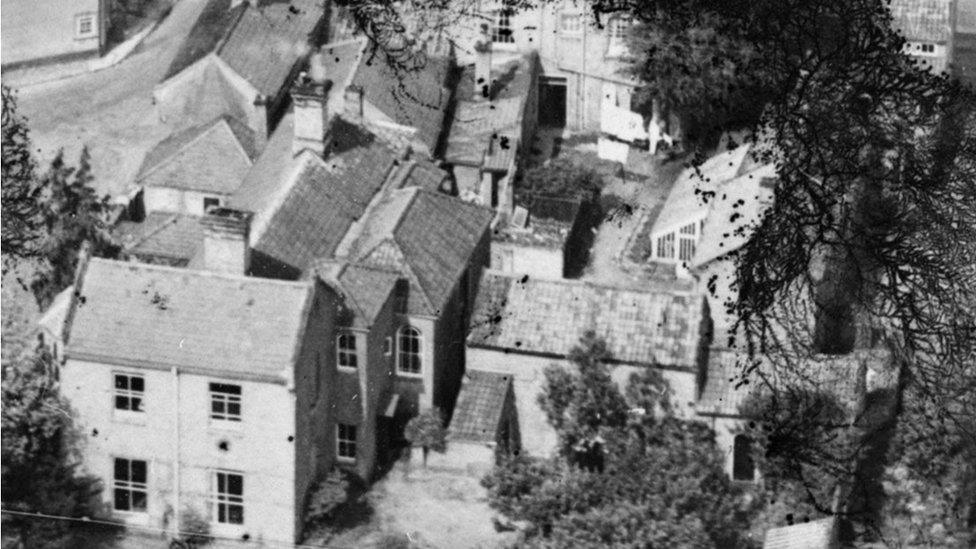
This aerial image of The Cedars and its adjoining properties was taken in 1932

Find BBC News: East of England on Facebook, external, Instagram, external and Twitter, external. If you have a story suggestion email eastofenglandnews@bbc.co.uk, external
Related topics
- Published5 December 2022
- Published10 November 2022
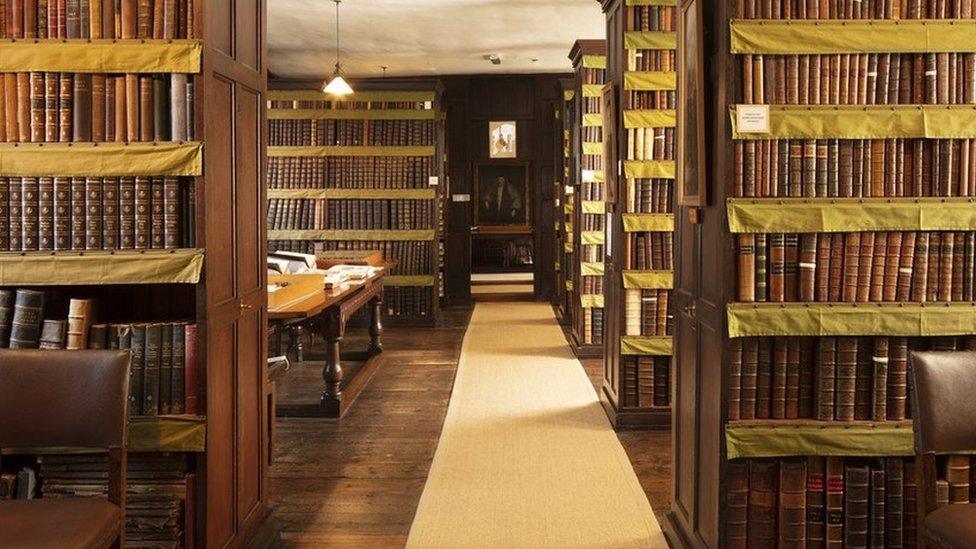
- Published12 May 2022
